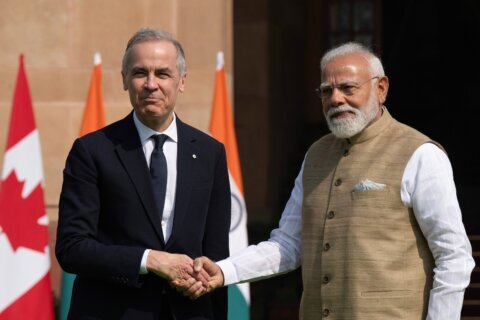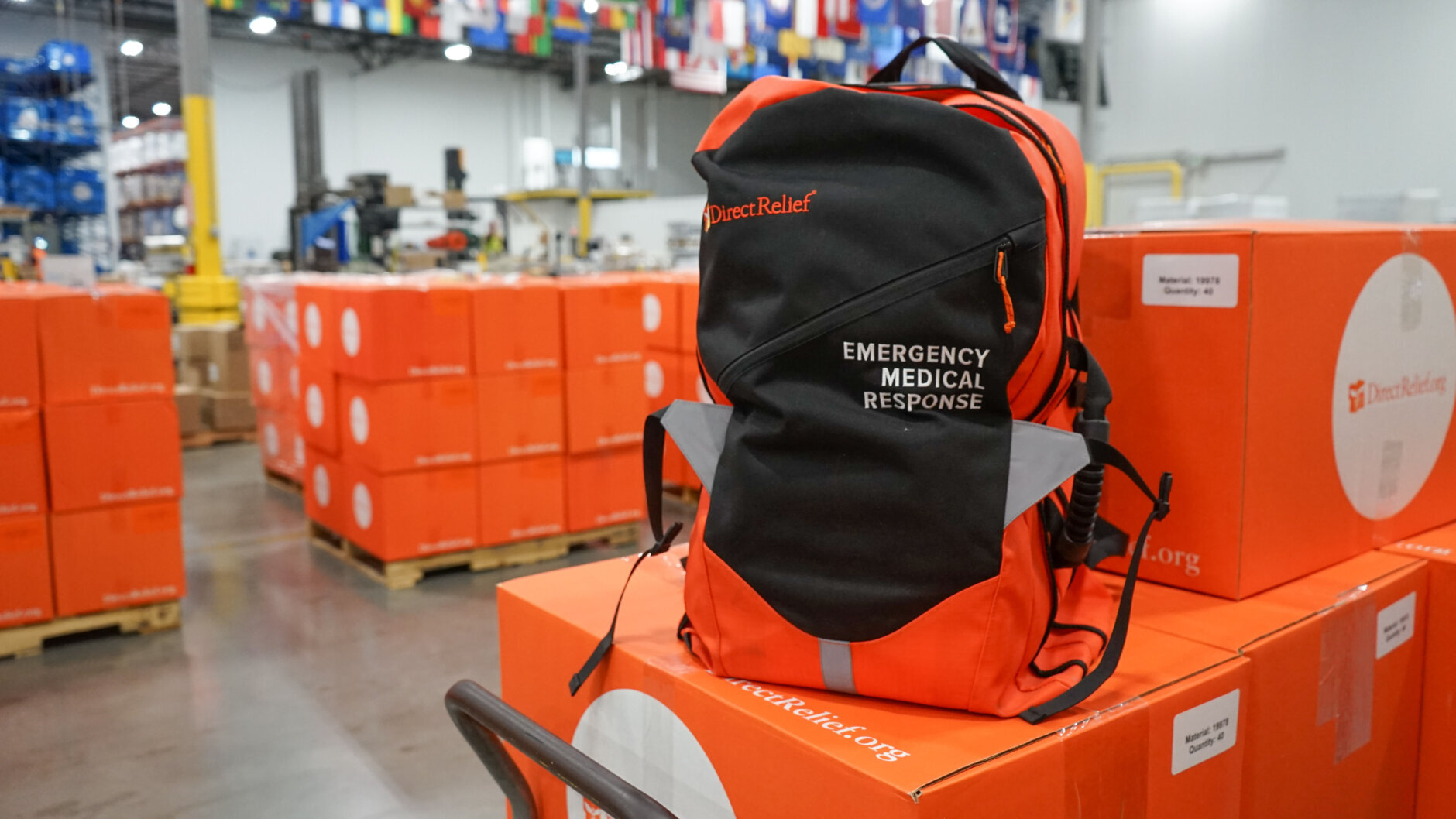
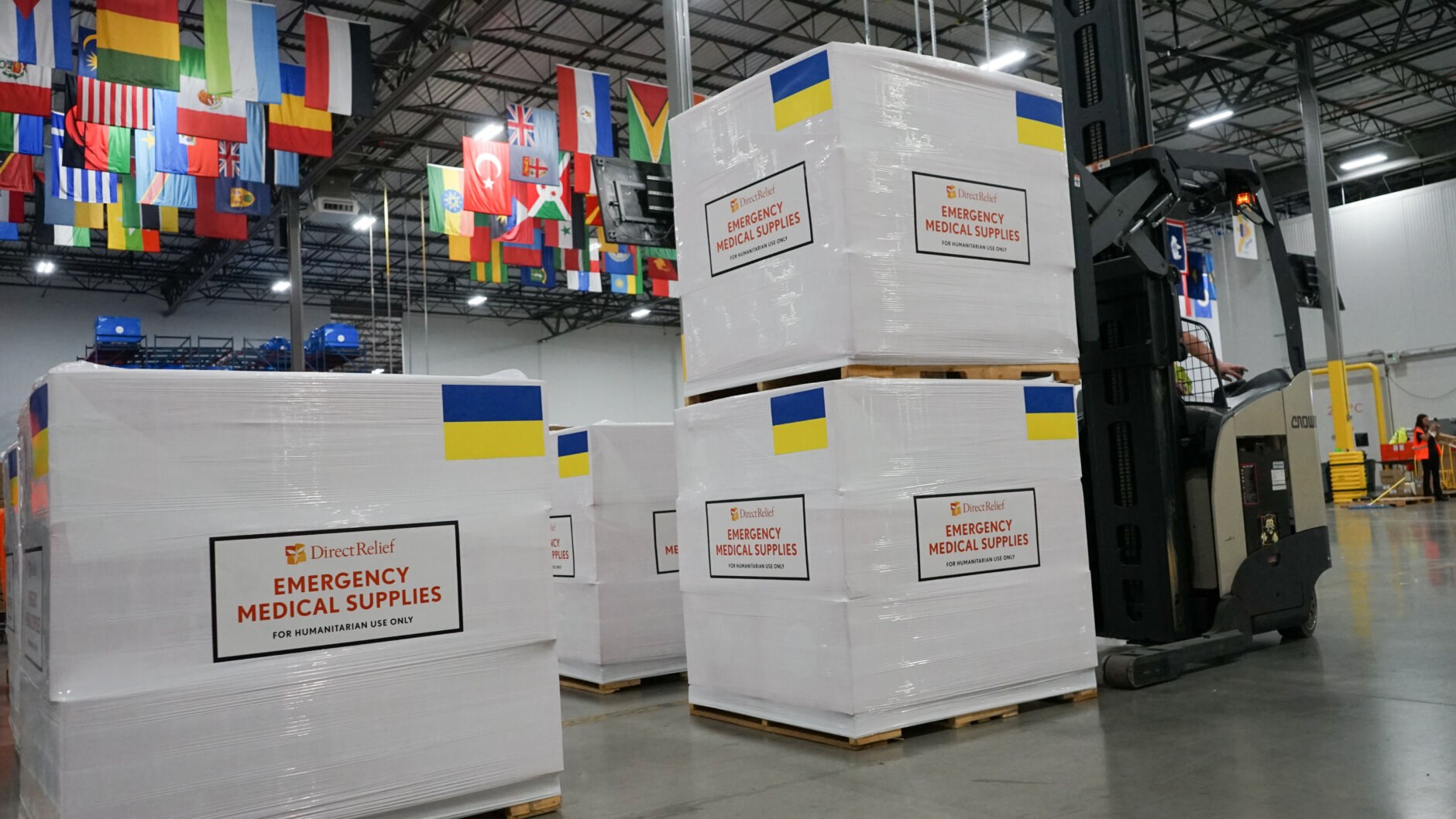
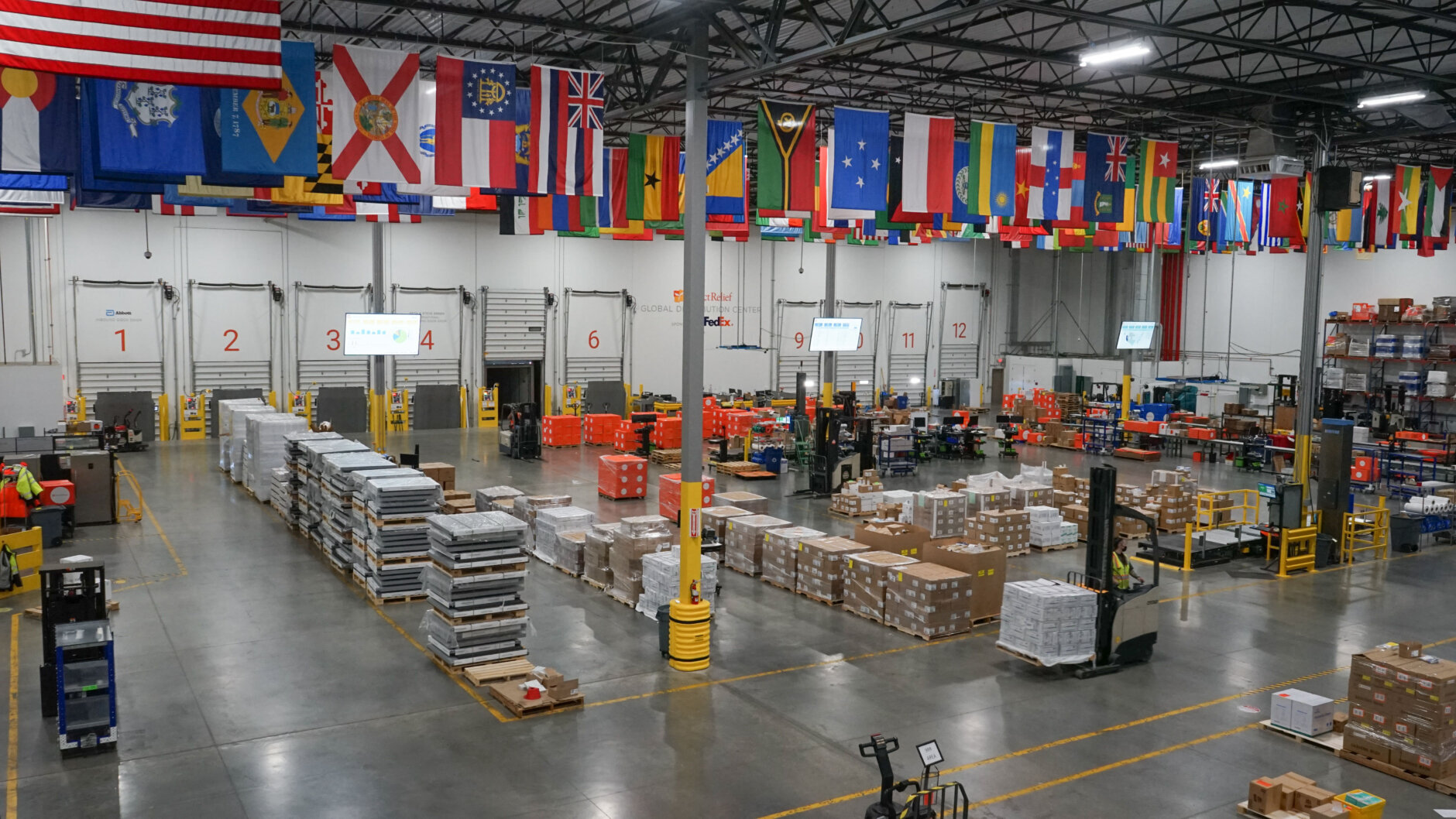
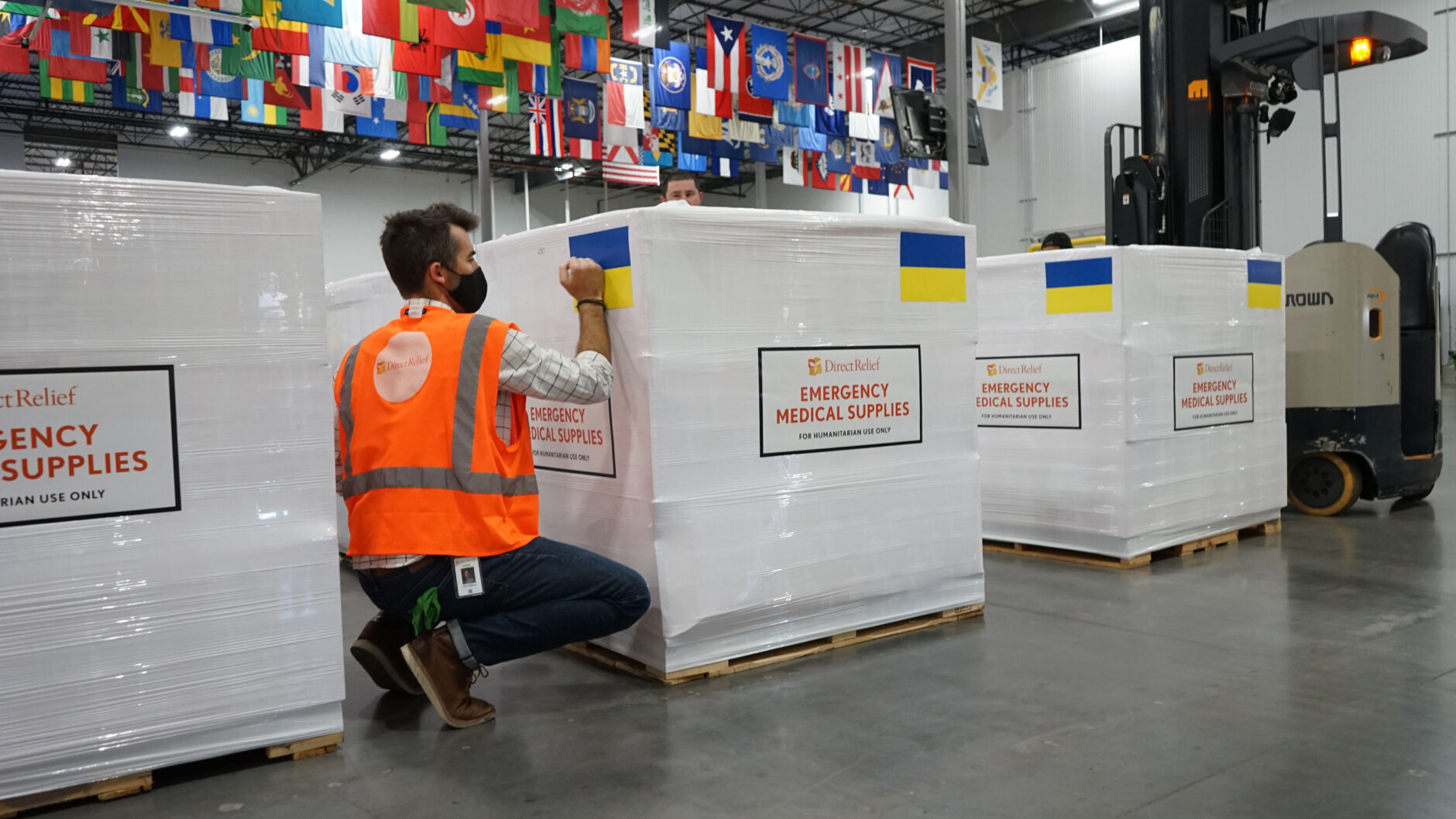
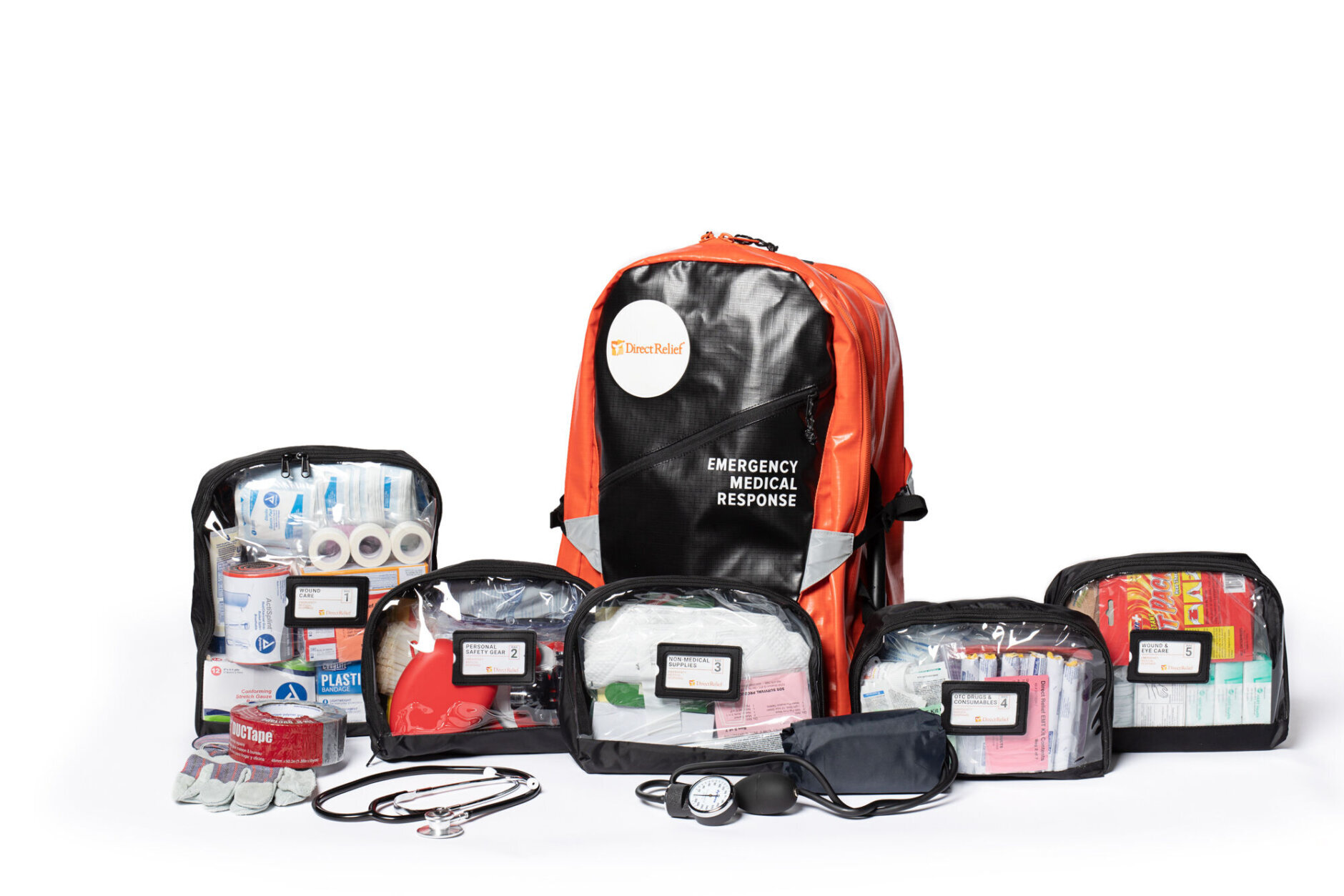
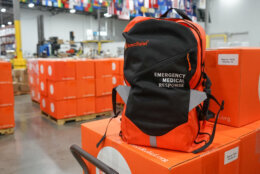
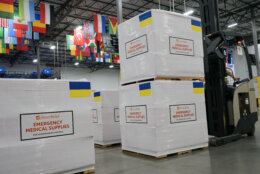
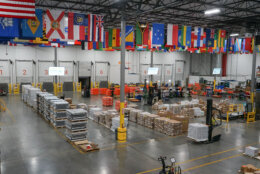
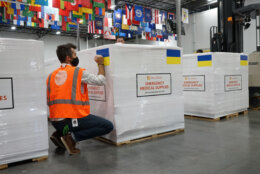
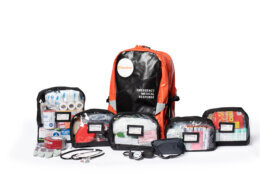
Sometimes making things happen is all about who you know.
The connections that U.S.-based humanitarian group Direct Relief has made over the years are now helping it get medical supplies into war-torn Ukraine.
“Having those good established ties is basically what we’re maintaining and trying to adjust to the circumstances,” said Thomas Tighe, president and CEO of Direct Relief.
Direct Relief is a nonprofit with no religious or political affiliation; it’s active in all 50 U.S. states and territories and in about 100 countries a year. For decades, its focus has been on providing prescription medications and other medical essentials free of charge.
“As recently as two weeks ago, we were responding to requests for some specialized cancer therapy, as well as some cardiovascular-specific medications. That worked fine, got into Kyiv, cleared customs and was all approved. And it’s changed fundamentally in less than 10 days,” Tighe said.
Six months ago, the medical supplies being delivered by Direct Relief to Ukraine focused on COVID-19 therapies. There’s ongoing work with the Ukrainian Diabetes Association to supply insulin to Ukraine’s 15,000 kids with Type 1 diabetes.
“Clearly, it shifted in the last few days as the war has expanded from all those types of fill-the-gap issues to big requests for traumatic acute care to deal with mass trauma and injury — for gauze and sutures and advanced care for traumatic injury. So that’s clearly the priority on the Ukrainian side now,” Tighe said.
Ask Tighe what people can do if they want to help and his response is essentially to make informed choices.
“I’m so focused on what Direct Relief does, it makes me conscious of all the other things we’re not doing,” he said. “There’s a lot of other groups that do things that Direct Relief does not do that are fine groups.”
He recommends checking out Direct Relief’s website and learning about other groups working in Ukraine through Charity Navigator or the Better Business Bureau.
“Their job is to inform consumers who are interested in making a charitable contribution how to do it wisely,” Tighe said.



